I haven’t blogged much about Emily’s dress lately because I have been focused on my 17th and 18th century sewing, but I have been plugging away on it.
Obviously the thing that I really need to make a the dress fit right is a 1903ish straight fronted corset.
Based on period advertising, the most common straight fronted corset imported and sold in New Zealand in the first five years of the 20th century was the famous W.B. Erect Form Corset.
For my 1903 corset, I used images of the WB erect form, and Norah Waugh’s ca. 1901 straight fronted corset pattern.
The patterning on these things is insane. The panels are ridiculously curved, and the seaming has no relation to the bone placement.
I’m draping my pattern on Isabelle. I’m not sure if this will really work. The 1903 silhouette is so extreme that it’s really hard to fit and figure out from anything that remotely matches a normal body shape. I’m just going to try my best, and hope!
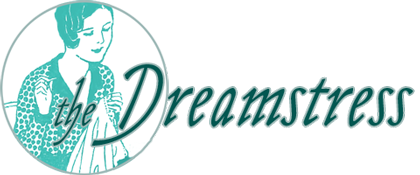
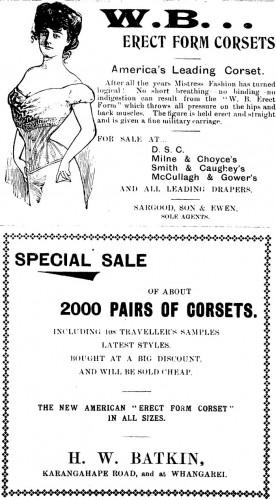


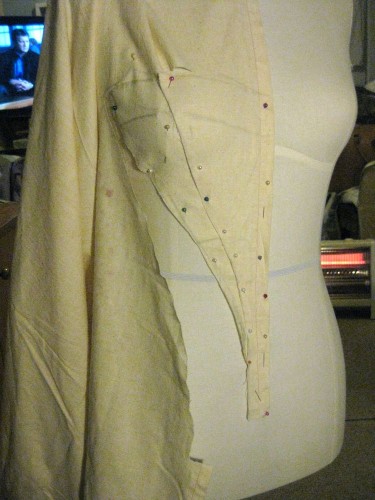
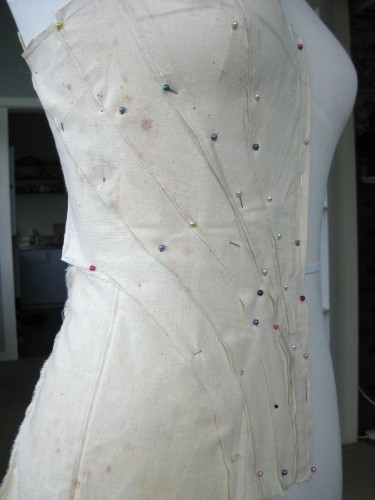
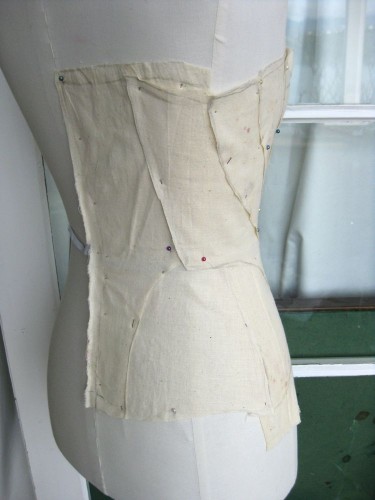
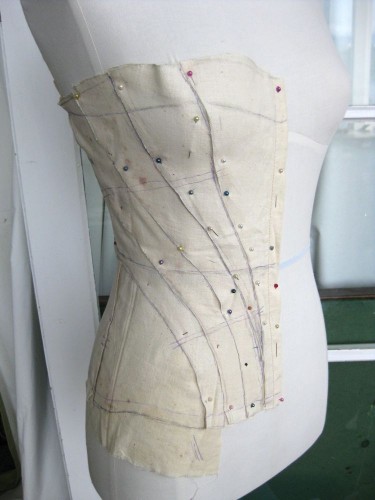
Did corsets like this ever have padding in the hips and rump and even bust? I know that padding was a practice but wonder where it fits in to the layers of clothes…
I’ve never seen the padding built into the corset, but I have seen bust improvers that went over it. I’m really not sure about the hips and bottom.
Corsets were indeed padded to give the hip curve, etc. If you read the book The Corset and the Crinoline [Not Nora’s it’s a different author] they discuss the subject.
Ugh. That sounds like a nightmare and a half, least mentioning the inability to see if it’s really doing it’s job on a dress form. It does look good so far, though, and I hope everything goes swimmingly for you!
Youch! Looks painful! The wearing I mean–although the making looks painful, too!
Yeah, these patterns don’t immediately scream “that’s a natural body shape” do they! They were marketed as being more comfortable than earlier corsets though!
Seeing this I can totally relate to all those fashion designers who were ready to abandon corsets forever! It looks like an iron maiden, exept without the spikes. It will be interesting to see how this will work on a person.
Yay! I’m so glad to see Emily’s dress again. This is one of my favorite periods. (besides 1780’s. And 1840’s. And…yeah.)
BTW, I had an idea for a poll. I know you asked a long time ago, and I didn’t have any suggestions then, but I’d like to see what people think-
Clark Gable, or Gary Cooper?
🙂
I’ve made this pattern myself. I didn’t drape it though, I drew a grid on the diagram in Corsets and Crinolines and got it full size that way. I had a lot of trouble getting it small enough in the waist – I ended up taking out two of the side front pieces and widening the top of the other front pieces so it’d still fit my boobs. Other than that though it was a good pattern to work with and turned out very nice. It’s very comfortable, too. I’ll be really interested to see how yours turns out!